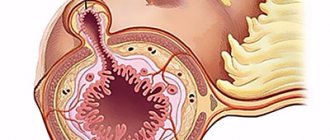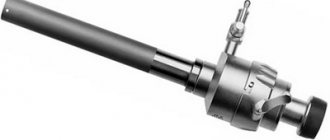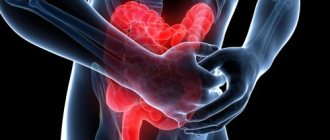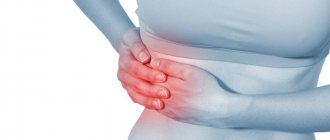Many people like beer. Among its advantages, lovers note a relaxing effect and the ability to quickly quench thirst. Few people will refuse this pleasant foamy drink. Unfortunately, diarrhea sometimes develops after it. Most often, this condition occurs when drinking the drink in large quantities. This condition is not accidental; below we will discuss why diarrhea occurs after beer.
Causes of alcoholic diarrhea
| Intoxication of the body. | Changes in intestinal microflora. | Development of concomitant diseases. |
| The main component of alcoholic beverages is ethyl alcohol (ethanol), which not only irritates the mucous membranes of the oral cavity and digestive tract, but also disrupts neurohumoral regulation and also has a toxic effect in general. In case of poisoning, the body strives to cleanse itself of harmful substances - the breakdown products of ethanol. Vomiting and diarrhea after alcohol contribute to the rapid elimination of toxins, but cause a lot of discomfort and threaten dehydration. | Ethanol can increase the permeability of the intestinal wall and lead to changes in the composition of the flora, creating the preconditions for the death of beneficial microorganisms. This not only often causes diarrhea after alcohol, but also has an extremely negative effect on digestion. Due to a disruption in the composition of the microflora, beneficial substances may be less absorbed, and the intestines no longer produce vitamins necessary for the body. | If loose stools are observed regularly after alcohol, this may indicate the development of gastritis, enterocolitis, liver damage, and pancreatitis. Such pathologies often arise against the background of constant alcohol abuse due to intoxication and chronic irritation of the mucous membranes of the digestive organs. |
The effect of beer on the human body
Beer is a drink produced by the alcoholic fermentation of malt wort using brewer's yeast, usually with the addition of hops. The ethyl alcohol content in most types of beer is 3–6% vol. (sometimes higher, strong drinks usually contain 8% vol., maximum - 14% vol.), dry substances (mainly carbohydrates) - 7-10%, carbon dioxide - 0.48-1.0% (according to materials Wikipedia).
Beer advertising shows us that beer is a path to easy communication, an attribute of fun and relaxation after a well-deserved day of work. But that's what advertising is for. And it is ingrained in the mind that beer is a low-alcohol drink and is less harmful than strong alcoholic drinks. However, beer - we emphasize once again - contains ethyl alcohol and is an alcoholic product.
Let us recall that ethyl alcohol is widely used in industry as a solvent and in medicine as a disinfectant.
Ethyl alcohol entering the body acts on the cerebral cortex: under the influence of alcohol, the predominance of excitation processes over inhibition processes is manifested.
In large doses, ethyl alcohol causes depression of the functions of both the spinal cord and the medulla oblongata. Under the influence of ethyl alcohol, death can occur as a result of paralysis of the respiratory center. In the last decade, acute poisoning with ethyl alcohol ranks first (about 60%) among poisonings with other toxic substances. Alcohol not only causes acute poisoning, but also contributes to sudden death from other diseases (primarily from diseases of the cardiovascular system).
The disguise of alcohol in “low-alcohol” products leads to their consumption more often and in larger volumes. Youth alcoholism most often begins with beer. A bottle of strong beer corresponds to approximately 75 grams of vodka. 32% of alcoholics became alcoholics as a result of systematically drinking beer.
Regular consumption of beer (as well as other alcoholic beverages) causes structural changes in the body, degeneration of tissues and their atrophy: the “bull’s heart” phenomenon, hormonal changes, cirrhosis of the liver, persistent dilation of facial vessels (especially nasal vessels), increases the risk of having children with mental and physical impairment. In addition, alcohol intoxication often causes accidents at home, at work, in transport, etc., and leads to violation of social norms and the law.
Modern brewers are required to use only approved food additives, however, there have been cases when, to ensure the safety of the drink, formaldehyde was added to beer (a disinfectant and deodorizing agent, it is used to preserve anatomical specimens, tanning leather, and for embalming). This substance causes tissue death. And to ensure the preservation of the “beer head”, cobalt chloride was used, which is highly toxic to the body.
Let's take a closer look at beer
Alcohol dilates blood vessels, involuntarily causing an increase in blood pressure. Regular consumption of beer makes this state of the body chronic, and the cardiovascular system has to adapt to a new way of working - as if under increased stress. As a result, the heart muscle “wears out” and cannot cope with its tasks. It turns out that the main harm of beer for a man lies in the occurrence of the most common male diseases - coronary heart disease, strokes, and heart attacks.
Beer, according to research by the World Health Organization, is one of the causes of colorectal cancer. And all because of plant resins, which, being the strongest carcinogens, are found in large quantities in hop cones.
The harm of beer to the body is manifested in gastrointestinal disorders: the stomach suffers from drinking any carbonated drinks, including beer. Carbon dioxide increases the acidity of gastric juice, which leads to gastritis, a disease that creates a favorable environment for the proliferation of Helicobacter pylori. These bacteria cause gastric ulcers, which often develop into cancerous tumors.
The foamy drink disrupts the functioning of the liver (liver cirrhosis, hepatitis), spleen and pancreas. Cold alcohol, or that which is diluted with chilled drinks and ice, is very harmful. The fact is that cold drinks and food negatively affect the spleen, and it is responsible for nutrition and hydration of tissues and muscles and for the distribution of fluids in the body. When the spleen is exposed to cold, fatigue and lack of concentration occur, which leads to weakening of the entire body. When the digestive tract is weakened and cold, it can be accompanied by a lack of appetite, gas, and a feeling of fullness.
The intoxicating drink contains cadaverine, a toxic chemical compound that has a neuroparalytic effect and has a detrimental effect on nerve cells.
Beer is a drink with hormonal activity. Multiple studies have confirmed that beer contains an analogue of female sex hormones, phytoestrogens. By a man's appearance, one can determine whether he is abusing beer or not. After all, for lovers of an intoxicating drink, feminization of the body occurs: fat is deposited in the hips and sides, the breasts and abdomen enlarge, and the amount of hair on the body and face decreases. Over time, men's potency decreases and sperm quality deteriorates. Those who have been drinking beer for 10-15 years are unlikely to avoid impotence.
Finally, the frequent urge to urinate does not train the kidneys at all, but increases the risk of narrowing their blood vessels. In case of modification of the vascular system and in conditions of active consumption of beer in the kidneys, the likelihood of hemorrhage increases, which, in turn, can lead to death.
Despite the fact that the drink made from malt and hops is low-alcohol compared to, for example, vodka or cognac, it becomes addictive 4 times faster than strong alcohol. Beer alcoholism is a disease whose onset is very difficult to track, but it occurs much more often than all other types of alcohol addiction. Due to the low alcohol content, you can drink a lot of beer in one evening. And if you often feel an irresistible desire to “have a glass or two with friends,” if you cannot relax after a hard day without a bottle of beer, if after drinking it you experience short-term memory lapses, think about it: you have quietly become a beer alcoholic.
Based on materials from the Yekaterinburg City Center for Medical Prevention
Why is alcoholic diarrhea dangerous?
Taking large doses of alcohol alone can lead to dehydration, and accompanying diarrhea significantly aggravates the condition. Dehydration is indicated by:
- feeling of thirst,
- pale face,
- dry mouth,
- rare urination.
| Severe dehydration can be life-threatening as it can lead to shock and kidney damage. | Against the background of dehydration with alcoholic diarrhea, in some cases, electrolyte disturbances also develop, since the body loses essential salts along with water. As a result, respiratory and/or heart failure may occur. | A violation of the water-electrolyte balance is indicated by a feeling of shortness of breath, increased heart rate and other rhythm disturbances. | Dehydration due to severe diarrhea can lead to exhaustion of the body. |
Is it possible to drink a lot of beer?
Drinking beer in large quantities leads to disturbances in the functioning of the gastrointestinal tract.
Excessive beer consumption can lead to the following consequences:
- disruptions in the functioning of the gastrointestinal tract;
- disturbances in the functioning of other internal organs.
Alcohol, which is part of beer, has a destructive effect on all internal organs and systems. Some people tend to drink only non-alcoholic beer, hoping that this way they can protect themselves from negative consequences. However, this beer also contains alcohol, only in smaller quantities.
All modern beers contain a fairly high percentage of alcohol, which is approximately equal to the percentage of alcohol in wine. Long gone are the days when beer was a truly low-alcohol drink.
An addiction to beer can lead to disruptions in the body, as a result of which the internal organs will perceive this drink as an integral part of their system. As a result, 2 situations may develop. Firstly, the body will simply stop reacting to it. Secondly, diarrhea may well become chronic.
How to treat alcoholic diarrhea
| 1. Consult your doctor. | Acute diarrhea after alcohol is a reason to consult a specialist. The doctor will not only select symptomatic therapy to reduce the number of bowel movements, but may also prescribe additional tests to identify diseases that are associated with diarrhea. You should urgently seek medical help if you have difficulty breathing, changes in heart rate, blood in the stool or vomit, or confusion. |
| 2. Stop drinking alcohol. | In order to get rid of the unpleasant symptoms of diarrhea and general intoxication as soon as possible, it is important to completely avoid drinking alcohol. New doses of alcohol will only aggravate the condition of the digestive system and will further irritate the mucous membranes, so loose stools can persist for a long time. |
| 3. Try to reduce intoxication. | One of the important measures is the removal of ethanol breakdown products from the body. To do this, the doctor may recommend doing a gastric lavage, then taking sorbent medications. They can help absorb toxins and remove them from the body. |
| 4. Follow a diet. | For several days after an episode of alcoholic diarrhea, it is advisable to follow a gentle diet that reduces the load on the stomach and intestines. Fatty, fried and spicy foods, which have an irritating effect on the mucous membranes, are completely excluded from the diet. |
| 5. Take rehydration solutions. | To replenish fluid deficiency during and after diarrhea, it is important to drink a lot and often (2.5–3 liters per day). For this purpose, rehydration solutions containing salts necessary for the body can be used. Specific medications and dosage regimen should be advised by a doctor. Their timely consumption can help prevent the development of electrolyte disorders. |
Alcoholic gastritis, what is it?
Signs of alcoholic gastritis can be: heartburn, nausea and pain in the stomach.
In order for the gastrointestinal tract to function without interruption, a certain set of enzymes is needed. Among them is pepsin. The presence of alcohol in the body becomes a reason that disrupts the production of this substance. Its deficiency entails disruption of the intestines.
If the breakdown of proteins occurs outside the norm, you cannot count on the complete absorption of incoming products. As a result of frequent diarrhea, alcoholic gastritis develops. Experts note the following signs of this pathological condition:
- pain in the stomach;
- increased tone of the abdominal muscles;
- heartburn;
- the appearance of an unpleasant aftertaste;
- nausea;
- diarrhea;
- temperature increase;
- weakness.
If these signs or any part of these symptoms are present, consultation with a doctor is necessary.
Prevention of alcoholic diarrhea
- To prevent the occurrence of diarrhea, it is important to observe moderation in the consumption of alcoholic beverages, and, if possible, completely abstain from alcohol.
- It is unacceptable to take it on an empty stomach, in which case the negative effect on the digestive tract may be even more pronounced.
- After drinking any alcoholic beverages, regardless of strength and quantity, it is advisable to drink more liquid to prevent dehydration.
This is important to do even if there is no diarrhea.
Should I start worrying?
If diarrhea after beer goes away on its own, then there is no need to worry: as a rule, this happens in 9 cases out of 10. However, in some cases, diarrhea after beer can be a symptom of a more serious illness, which should be discussed separately and which needs to be treated. So, the symptoms of what disease can be diarrhea after beer?
- Stomach ulcer: With a stomach ulcer, diarrhea is generally common. The fact is that with a stomach ulcer, food is not completely digested, and some of the microorganisms inside the food are preserved and pass into the intestines, where active rotting begins. True, it is quite difficult not to notice a stomach ulcer - with a stomach ulcer, drinking any alcohol is accompanied by such intense pain that it is simply impossible not to pay attention to it.
- Pancreatitis - inflammation of the pancreas can also cause diarrhea. As a rule, pancreatitis occurs with constant consumption of alcohol combined with fatty foods. Pancreatic enzymes are not released into the intestines, and the gland begins to process and digest itself. Diarrhea, as a sign of improperly digested or undigested food, is a symptom that the intestinal tract is not working correctly.
- Enterocolitis is an inflammation of the intestines, due to which intestinal function completely changes and diarrhea becomes chronic. As a rule, enterocolitis is a companion to acute gastritis. The causes of this disease are infections, poor nutrition, excess alcohol, abuse of spicy or salty foods, as well as constant intoxication (at work, medications, long-term use of antibiotics).
In general, any prolonged manifestation of diarrhea is a serious symptom that requires, at a minimum, careful investigation by medical professionals.
IMODIUM® Express for alcoholic diarrhea
According to the instructions, IMODIUM® Express is used for the symptomatic treatment of acute diarrhea of various origins. The drug in the form of lozenges is convenient to use in any life situation. It does not need to be taken with water and can be used even with dysphagia (difficulty swallowing). The active ingredient of IMODIUM® Express is loperamide. This is the first drug with such an active ingredient, patented in 1973. IMODIUM® Express is a well-studied product that has undergone numerous studies confirming its therapeutic effect. This makes the drug different from analogues with the same active substance, on which only bioequivalence studies were carried out. For acute diarrhea, IMODIUM® Express can begin to act within an hour1. Before use, you should consult a specialist and read the instructions.
The information in this article is for reference only and does not replace professional advice from a doctor. To make a diagnosis and prescribe treatment, consult a qualified specialist.
1 Study by Ameri et al. Multicenter, double-blind study: comparing the effectiveness of loperamide for acute diarrhea with two popular antidiarrheal agents and placebo. 1975.
* Among products based on Loperamide. Based on sales in money for February 2022 - January 2022, according to IQVIA (from English IQVIA).
Symptoms of poisoning
Diarrhea is the final reaction of the body to an excessive amount of beer drunk or to a low-quality, expired product.
Preceding signals of alcohol poisoning, followed by the possibility of diarrhea, are:
- Pain occurs in the lower and upper abdomen. The pain is aching or cutting in nature, followed by intestinal colic.
- The fermentation process causes increased gas formation, as a result of which the intestines spasm, causing pain in the lower abdomen.
- As a result of intoxication of the body, nausea and a gag reflex can develop.
- General hyperthermia not associated with diarrhea or vomiting.
- General malaise, weakness.
- Sour belching, heartburn.
- Rarely dizziness, loss of coordination.
Such symptomatic manifestations can be caused by both excessive amounts of alcohol consumed and snacks with a high content of gastrointestinal irritants that have expired.
back to menu ↑
Possible consequences of beer diarrhea
With beer diarrhea, all bacteria – beneficial and pathogenic – leave the body. Therefore, the consequences may affect other organs.
What complications can there be:
- Poisoning.
- Chronic diarrhea.
- Enterocolitis.
- The occurrence of gastritis or ulcers.
- Hormonal imbalance.
- Dehydration.
- Cirrhosis of the liver.
- Hepatitis.
- Metabolic disorder.
- Dysbacteriosis.
- If you have diseases of the gastrointestinal tract, kidneys or liver, exacerbation is possible.
Dangerous "additives"
There are no less compelling reasons that can cause diarrhea after drinking beer. Significant stool upset can be caused by preservatives, flavors and dyes, which the manufacturer generously adds to its product to extend its shelf life. Among them, it is worth noting those that can theoretically cause diarrhea.
- Calcium and potassium sulfite are antioxidants: they cause gastrointestinal diseases.
- Cobalt salts are beer foam stabilizers: they cause inflammation in the esophagus and stomach.
- Sugar coloring - caramel coloring: has a negative effect on the digestive system.
It is no coincidence that “live” beer with a limited shelf life is more popular; it is devoid of “beer chemistry” and, accordingly, is less dangerous.
Diarrhea after drinking beer can be explained by an allergic reaction to this multi-component “uzvar”. Any of its components can cause food allergies and soon manifest as intestinal disorders.
Has anyone ever thought that in some homes beer has firmly taken a leading place among the staple foods? Its regular use affects not only the digestive system, but also metabolism. Hops, an invariable component of beer, contains a record amount of phytoestrogens. Their increased content can affect a person’s hormonal status. In addition, the excessive load on the heart, kidneys and liver that occurs with regular excessive consumption of beer has a negative effect on the entire body as a whole. And its manifestation is not only diarrhea, problems with the heart and liver are also possible.
Diarrhea from a draft drink
Diarrhea after draft beer is often caused by poisoning. This is due to non-compliance with sanitary and epidemiological conditions.
Beer is usually stored in kegs. The temperature should not exceed 10-20 ºС. It is necessary to ensure excellent ventilation and thorough flushing of the system to eliminate all remaining drink in the supply line. Bottling containers must be disposable.
The seller must have all the necessary documents and permits to sell the drink. If you purchase low-quality or expired beer, bacteria will multiply in it.
Basic information about addiction
The most popular drink among modern people is beer. Unfortunately, many of them consider it absolutely harmless and harmless. But in reality this is not true.
Beer is alcohol, so its excessive and frequent consumption has a negative impact on a person’s overall health and often causes addiction.
After beer, diarrhea develops quite often. Experts say that this phenomenon is observed only when drinking a large amount of foamy drink. As for beer lovers, they believe that diarrhea is not a serious problem, so there is no need to give up alcohol because of it. However, doctors report that every year a huge number of patients die from this disease in the world. Therefore, it is very important to know why diarrhea in the morning after beer bothers many people and how to properly deal with this problem.
Diarrhea from unfiltered beer
This drink is made from barley, but rye, wheat, and rice are often used as raw materials. Beer can be pasteurized or unpasteurized, as well as filtered and unfiltered.
A pasteurized foamy drink can be stored for no more than 6 months, an unpasteurized one - about a month at a temperature of 3-11ºС. Unpasteurized beer is filtered to remove residual yeast and other unwanted components, which helps increase its shelf life.
Diarrhea from unfiltered beer is caused by the presence of harmful microparticles that are not properly removed. Poisoning can occur if storage conditions are violated or the product is expired.
The most dangerous thing in this case is acute intoxication, especially when drinking a significant amount.
Should you drink beer if you have loose stools?
Any beer contains a number of harmful substances, so if the patient has problems with the gastrointestinal tract, diarrhea after a feast or the next day, then it is better not to risk his health. In addition to reducing the amount you drink, you need to be careful when choosing a drink.
In order to reduce the number of preservatives, preference should be given to live, fresh beer.
It is important that the product contains a minimum amount of dyes, flavors, preservatives, and chemical components . You can also choose a non-alcoholic drink.
How to avoid complications?
The surest way to avoid the consequences of taking intoxicating drugs is to refuse them. But an adult himself decides what is possible and what is not. Therefore, you should at least adhere to the rules:
- Buy only high-quality and proven products.
- Be sure to keep an eye on the expiration date.
- Do not overuse the quantity, especially if you have diseases of the gastrointestinal tract, liver, or kidneys.
If you have experienced diarrhea due to beer at least once, you should consult a doctor to identify possible diseases.
Treatment methods for beer diarrhea
To avoid the development of complications of diarrhea caused by drinking beer, it is necessary to diagnose the disease and determine a therapeutic regimen. First of all, you need to contact your family doctor or therapist. After clarifying the diagnosis, the therapist, if necessary, gives a referral to an infectious disease specialist or gastroenterologist. The main methods of treating beer diarrhea are conservative drug therapy and diet therapy.
Drug therapy
The main task is to prevent dehydration and infection. Therapeutic effects include taking medications:
- Salt rehydrants are intended to correct excess fluid loss by the body - “Rehydron”, “Electrolyte Humana”. Rehydration therapy allows you to restore electrolyte-water balance and compensate for fluid losses.
- Adsorbents are substances that absorb toxins and harmful substances by binding and releasing them from the body - “Atoxil”, “Polysorb”.
- "Haloperidine", its derivatives to reduce psychomotor agitation.
- Intestinal antiseptics to prevent the development of intestinal infection "Nifuroxazide".
- Means for reducing intestinal motility, antidiarrheal - “Imodium”, “Loperamide”.
- Live beneficial microorganisms for the human body. When consumed regularly, they provide a beneficial effect on the digestive organs by increasing the activity of intestinal microflora. These include “Yoghurt”, “Linex”, “Bifidum bacterin”.
- A complex of vitamins and minerals as an auxiliary therapy.
- In severe cases, antibacterial drugs, enzymes, and corticoids are used.
Taking medications provides therapeutic effects
Proper nutrition
In a set of measures to treat diarrhea, it is important to follow a gentle diet:
- Avoid fried, fatty and spicy foods.
- Limit the consumption of fermented milk products.
- Treat sweet and confectionery products with caution.
- Remove from your diet foods rich in fiber that promote active fermentation - fresh, salted vegetables, fruits.
- Avoid using legumes, peas, lentils, and corn for cooking.
- Avoid alcoholic beverages.
Recommended for use:
- boiled meat of dietary varieties;
- stale rye bread;
- rice water;
- boiled grains of rice, buckwheat, oatmeal;
- boiled chicken and quail eggs;
- baked vegetables, fruits – potatoes, apples;
- durum wheat pasta.
It is important to follow a gentle diet as part of a set of measures to treat diarrhea
back to menu ↑
The dangers of beer abuse
Diarrhea from beer may indicate diseases of the digestive tract. The main pathologies causing diarrhea are:
- peptic ulcer;
- forms of hepatitis;
- pancreatitis;
- gastritis;
- inflammation of the intestines.
We recommend: How to stop diarrhea due to pancreatitis and how to treat it?
Beer abuse, in addition to gastrointestinal diseases, can cause alcoholic gastritis. This disease affects a person due to excessive drinking of a foamy drink. The main symptoms of the pathology, besides diarrhea:
- nausea, vomiting;
- unpleasant taste in the mouth;
- feeling of heartburn;
- increased body temperature, loss of strength;
- frequent acts of defecation;
- the stomach hurts, there is a feeling of discomfort;
- tense abdominal muscles.
From time to time, cases arise when the stool, in addition to having a watery consistency, has impurities. If there is bloody diarrhea, then this is a dangerous signal and you should be hospitalized immediately.
Traditional methods
There are many traditional medicine methods that alleviate diarrhea or eliminate it altogether. Most of them can be used without consulting a doctor. As a rule, the effect of their use is achieved within a couple of hours.
Congee
Perhaps this is the most popular and accessible way to combat diarrhea. In addition, it is one of those products that are classified as absolutely safe for the body. Rice broth envelops the intestines and does not allow gastric juice to negatively affect it, improves peristalsis, and helps the formation of feces. Due to the starch contained in rice cereal, the product has the ability to absorb excess liquid and thicken liquid feces. In addition, rice water perfectly eliminates flatulence and inhibits fermentation processes.
Congee
It’s easy to prepare: just boil a couple of teaspoons of rice soaked in cold water in a liter of boiling water. You need to cook for about 50 minutes. Next, the broth is cooled, filtered through a fine sieve and taken 150 ml every 3 hours.
Bird cherry decoction
Bird cherry is excellent for treating diarrhea if the latter did not develop against the background of infections. But you should not overuse the decoction - bird cherry contains amygdalin, which, when broken down in the body, produces hydrocyanic acid, which is classified as a poison. The decoction must be prepared according to a prescription and should not be drunk without consulting your doctor. Nursing mothers and pregnant women should not use it.
Bird cherry decoction
To prepare the decoction, use bird cherry berries washed with clean water (0.5 cups). They are poured with boiling water and placed in a water bath for 30 minutes. After this, the broth is infused for half an hour, covered with a lid. Next, you need to strain it and dilute it with blueberry juice in the same amount. You need to drink 1 tbsp every hour. l.
Pomegranate peels
Dense, red, dry pomegranate peels, peeled from the white layer, are an excellent remedy. They contain about 30% tannins and are effective against diarrhea and almost any intestinal disorder. They are also capable of suppressing the causative agents of dysentery. However, the product has contraindications and consultation with a doctor is required before using it.
Pomegranate peels
Dried pomegranate peels are ground to a powder, after which 1 tsp. This powder is poured with boiling water (1 tbsp.) and boiled in a water bath for 60 minutes, after which it is infused for 40 minutes. You need to take 1 tsp. about 4 times during the day until diarrhea disappears.
Blueberry
It turns out that this plant benefits not only the eyes, but also the gastrointestinal tract. Dried berries are used to eliminate diarrhea; fresh ones have the opposite effect and are used for constipation. Blueberries are rich in pectin and tannins, effective and safe. You can make decoctions, jelly, and compotes from dried blueberries.
Dried blueberries
Oak bark
Oak bark is an excellent remedy against inflammation; it fights pathogenic microorganisms, has an astringent effect, and is capable of combining with proteins to form a protective layer on the intestinal walls. It is also effective for diarrhea. You can make tinctures, decoctions, and enemas from oak bark.
Oak bark
Black pepper
The simplicity and availability of this remedy for diarrhea made it possible to make black peas, along with rice water, the most used folk method for treating loose stools. Black pepper normalizes digestive processes by activating the production of enzymes and gastric juice. It's easy to use: you need to take 10 pieces. peas and simply swallow them with water. But the remedy, unfortunately, has contraindications - pepper cannot be used for ulcers, anemia, inflammatory processes in the kidneys or urinary tract.
Black peppercorns










